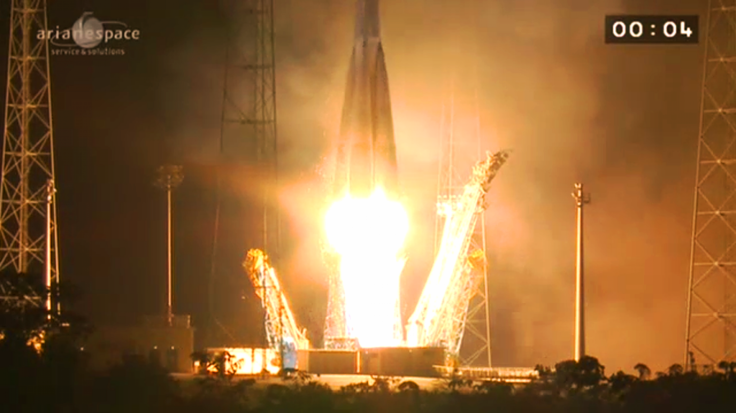Europe’s Gaia Lifts Off To Survey 1 Billion Stars And Create 3D Map Of Milky Way Galaxy

The European Space Agency, or ESA, on Thursday launched Gaia, a satellite that is expected to create the most accurate three-dimensional map of Earth’s vicinity in the Milky Way galaxy.
According to ESA, Gaia was launched into space aboard a Russian-made Soyuz rocket from French Guiana at 4:12 a.m. EST. The satellite is heading to an orbit called the Lagrange 2 point, or L2, which is a gravitationally stable point in space some 932,057 miles behind Earth as seen from the Sun. The spacecraft will arrive at its orbit around L2 about three weeks from now.
“The results from Gaia will revolutionize our understanding of the cosmos as never before,” Gerry Gilmore of Cambridge University, and principal Gaia investigator, was quoted by DailyMail as saying. “We don't even know how much we don't know - there are sure to be objects out there that don't even have names yet, since we don't yet realize how strange they are.”
DailyMail also reported that Gaia cost 620 million pounds ($1 billion) to build and the entire project cost a total of 2 billion pounds.
ESA said that once the satellite arrives at the desired location, Gaia will begin its mission to survey one billion stars in Earth's galactic neighborhood. As part of its cosmic census, the satellite will chart the positions, motions and characteristics of the stars to create the most precise 3D map of the Milky Way galaxy.
In addition, Gaia will also use its 1,000-megapixel camera to look for planets, asteroids and comets beyond the solar system, Associated Press reported.
According to the scientists, the sensors incorporated within the spacecraft are expected to detect objects so faint that the human eye would have to be nearly 4,000 times more powerful to see them.
“This accuracy is equivalent to measuring a shirt button on the moon as seen from the Earth. It means we have to have the highest-capability computers to analyze the data,” Floor van Leeuwen, manager of Gaia data processing, said in a statement.
© Copyright IBTimes 2024. All rights reserved.






















